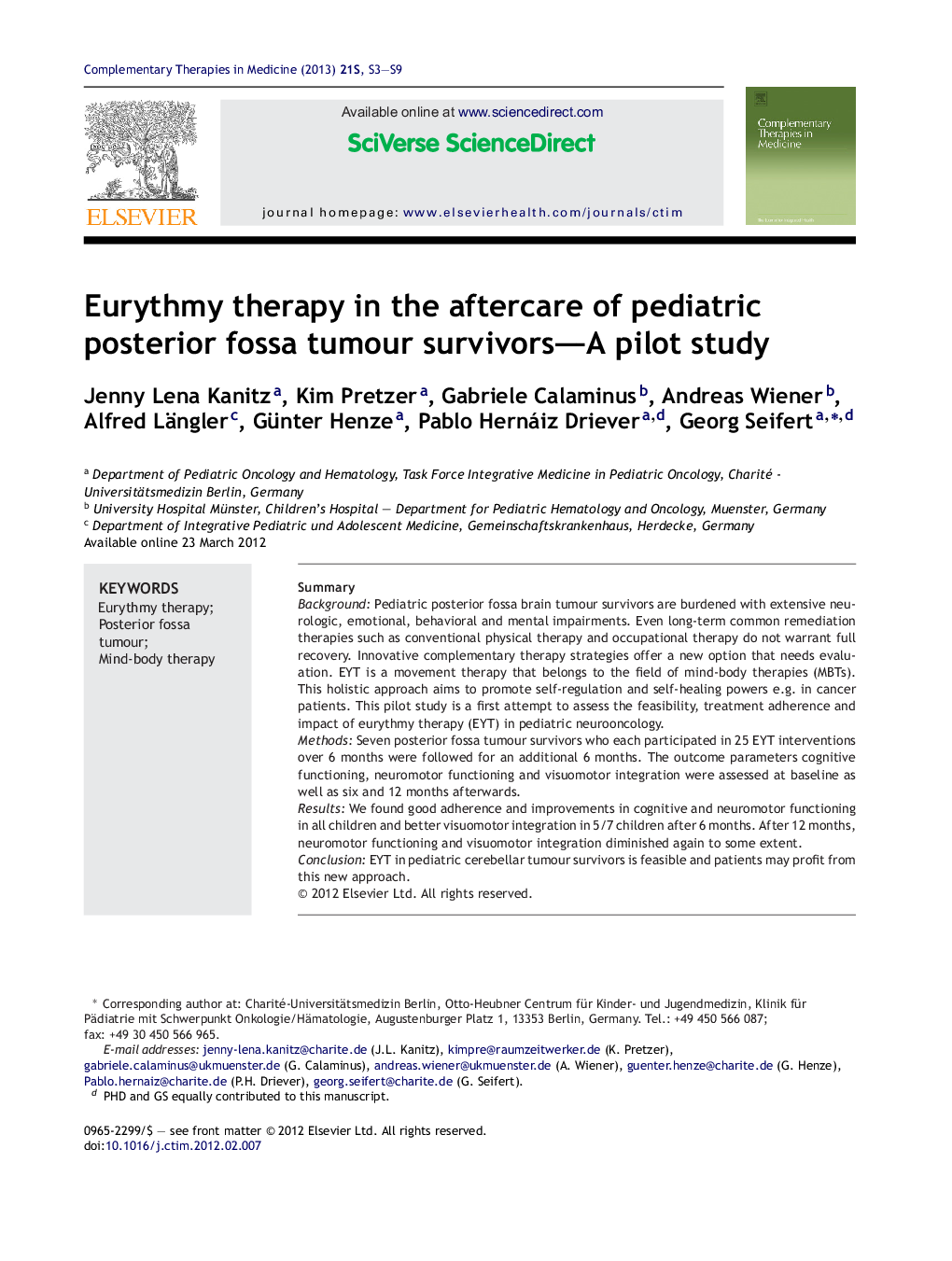| Article ID | Journal | Published Year | Pages | File Type |
|---|---|---|---|---|
| 2629078 | Complementary Therapies in Medicine | 2013 | 7 Pages |
SummaryBackgroundPediatric posterior fossa brain tumour survivors are burdened with extensive neurologic, emotional, behavioral and mental impairments. Even long-term common remediation therapies such as conventional physical therapy and occupational therapy do not warrant full recovery. Innovative complementary therapy strategies offer a new option that needs evaluation. EYT is a movement therapy that belongs to the field of mind-body therapies (MBTs). This holistic approach aims to promote self-regulation and self-healing powers e.g. in cancer patients. This pilot study is a first attempt to assess the feasibility, treatment adherence and impact of eurythmy therapy (EYT) in pediatric neurooncology.MethodsSeven posterior fossa tumour survivors who each participated in 25 EYT interventions over 6 months were followed for an additional 6 months. The outcome parameters cognitive functioning, neuromotor functioning and visuomotor integration were assessed at baseline as well as six and 12 months afterwards.ResultsWe found good adherence and improvements in cognitive and neuromotor functioning in all children and better visuomotor integration in 5/7 children after 6 months. After 12 months, neuromotor functioning and visuomotor integration diminished again to some extent.ConclusionEYT in pediatric cerebellar tumour survivors is feasible and patients may profit from this new approach.
